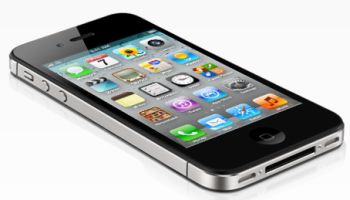Apple could be about to officially move into one of the world’s largest mobile markets, thanks to talks with China Mobile.
China Mobile Chairman Xi Guohua used a meeting with shareholders in Beijing to tell the audience, “We’ve been actively talking to Apple on how we can cooperate. I can’t give you too many details, but I’d like to repeat that both sides do hope to boost our cooperation,” according to a 17 May report from the BBC.
Official China Entry
Unofficially, China Mobile is said to already support more than 15 million iPhones. The devices were purchased elsewhere but are using China Mobile SIMs to run on the network, though they can only place calls and send text messages at 2G speeds, since the network and the iPhone are incompatible – a major reason China Mobile hasn’t officially offered the iPhone yet.
However, as the country transitions to Long-Term Evolution (LTE) technology, and the next iPhone in all likelihood is LTE-enabled, Apple and China Mobile may finally get to cooperate.
 The BBC report also adds some colour to why China Mobile runs a technology different from the iPhone-friendly networks of its smaller rivals, China Unicom and China Telecom, which have been steadily taking on China Mobile’s churning subscribers. BDA China consultant Duncan Clark tells the BBC that China Mobile was “anointed” by the Chinese government with the “dubious prize” of getting to deploy China’s own attempt at a 3G standard – an initiative that has been a “nightmare” for the company, which has aggressively invested in Wi-Fi hotspots as a “defensive measure.”
The BBC report also adds some colour to why China Mobile runs a technology different from the iPhone-friendly networks of its smaller rivals, China Unicom and China Telecom, which have been steadily taking on China Mobile’s churning subscribers. BDA China consultant Duncan Clark tells the BBC that China Mobile was “anointed” by the Chinese government with the “dubious prize” of getting to deploy China’s own attempt at a 3G standard – an initiative that has been a “nightmare” for the company, which has aggressively invested in Wi-Fi hotspots as a “defensive measure.”
Once Chinese authorities approve the new LTE standard, said Clark, the incompatibility issues will be resolved. The catch, he added, is when that will happen; 2014 is his earliest expectation.
China Daily reported 9 May that China is expanding the scale of its LTE trial, after the Ministry of Industry and Information Technology (MIIT) approved the second stage of the trial. The country is promoting a version of LTE called TD-LTE. More common – and used by Verizon Wireless, for example – is Frequency Division Duplex-Long-Term Evolution (FDD-LTE). A major difference is that TD-LTE uses a single frequency instead of paired spectrum, a benefit in spectrum-scare times. While it’s thought of as a Chinese solution, EETimes has reported that TD-LTE has the potential for much wider deployments.
Huge Market
China is now Apple’s second most successful market. During the first quarter of 2012, 5 million iPhones went to China and another 3 million to Hong Kong, Gartner reported 17 May.
Should China Mobile finally have an iPhone to sell, its 600 million-plus subscribers could do wonders for Apple’s ability to compete against Samsung, now the world’s top-shipping vendor in both the smartphone and overall mobile phone categories.
Consumers in China have shown themselves to have a tremendous appetite for Apple devices. Stores selling the iPhone 4S sold out of the device within hours of its going on sale. The Hong Kong store and five China retail stores are among Apple’s highest traffic and highest revenue stores, and Apple has plans to build several more stores there in the next few years.
In April, the BBC reported, as well, on one of the most extreme examples of the passion for Apple products in China: A teenage boy, solicited by an illegal organisation in a chat room, sold one of his kidneys in exchange for an iPhone and an iPad.
Are you a smartphone expert? Try our quiz!





